Khurshid Shaikh is an educator. For 25 years, he worked as a full-time teacher in Tribal areas of Maharashtra, India. He will be conferred with the award by President Ramnath Kovind on the occasion of Teachers’ Day on September 5 for his innovative ideas. He directed many educational short films, puppetry shows, and music videos for children to attract them towards education. In this whole-hearted conversation with Snehal Mutha, he talks about his work, challenges of Tribal areas, and education quality in private, public schools.
Tell us about your childhood & Education?
I spent my whole childhood with my three brothers in Varangaon, a village in Jalgaon district of Maharashtra. Father was a forest guard, so my connection with the forest is for a very long time. Mother passed away when I was 10 years old. In a way, had an ordinary childhood but full of life. Education-wise, I am the product of Zilla Parishad School. I completed my primary education from a government school, and then onwards went on pursuing DEd, BEd, and MEd Degrees. I learnt everything that could make me a good teacher. Being from Zilla Parishad school, I knew the struggle better. I come from an economically poor background. It has always been an element in my struggle but my father helped me a lot. My father was my role model, he always told me- 'Jab bhi duty karoge toh beauty se karna'. By this, he meant, do any job but do it with grace and passion. So that is how I grew under the shadow of my father, between jungles, and continued following my father's way of living.
What inspired you to become a Teacher?
I always knew teaching is something I want to do. Although, I never took it seriously. During B.Sc. 1st year, D. Ed forms were out and my friends were applying. At those time, it was important to have a job and a steady income source. There was this idea that after D. Ed, placements are easily offered. There was a tremendous requirement of teachers in both public and private spheres. So with all this information, I applied for the D. Ed and dropped out of BSC first year. Also teaching as art & profession has a wide scope. I mean, I love drawing, painting, writing songs, performing plays and I am so passionate about it. Teaching has provided me the liberty of practicing my passion every day. It is a beautiful profession. All these factors lead me to become a teacher.
Where did you first start working as a teacher? Tell us about your journey throughout the teaching profession?
Initially, I knew Gadchirolli as part of Maharashtra, while pursuing DEd understood the other complexities of it. At that time, I decided to work in Gadchiroli, and coincidently my first posting was in Gadchiroli in a private school 'Bhagwantrao High School Indaram'. Thereafter went on working in Zilla Parishad schools. Zingnaur was the first village where I was posted as a Zilla Parishad teacher in 1996. Zingnaur is home to tribal communities: Madia-Gond. I worked here for 7 years, taught students from the madia community, with no roads, no electricity, and zero awareness concerning education. This experience attracted me in dedicating my life to children in tribal regions. The whole teaching journey is influenced due to these 7 years. Later, worked in Aheri, Velgur, and Asaralli. In 2012, the government started the English medium 'Model schools'. Though Maharashtra's Model School experiment failed, my school was a success. Even today school is in operational mode with hundred of students attending. The school was honoured for the remarkable progress in Pune. Further, in 2013, I started teaching in Asaralli, a small village at the border of Maharashtra-Telangana, again a tribal area with Telugu speaking population. Over this period my linguistic database has increased- Gondi, Madia, Telugu, Marathi, Hindi, and English.
What is the Model School project?
It was an experiment by the Maharashtra government. Basically, an English medium school for students to learn English. Under the project 6 to 12th-grade students were eligible, but these classes were supposed to start in phases. The project did not work out well as the student's enrollment number was less. Teachers requirement was not full-filled. Few of the recruited ones were retired teachers. Many other factors added to it, still, our school was a success. Today among 45 schools only three schools are working and all are in Ghadchiroli.
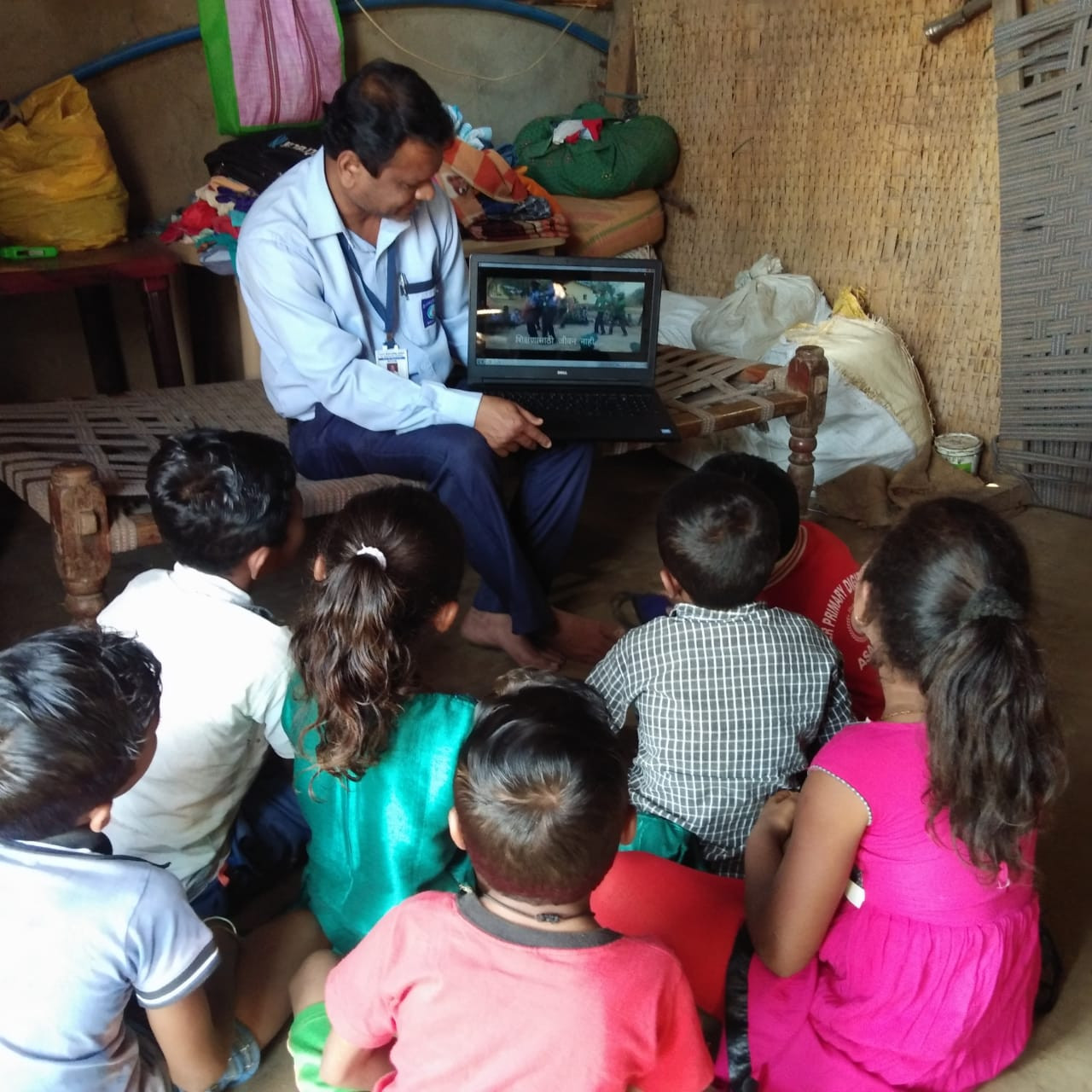 Working in the Tribal region is not a cakewalk, So what were the challenges here?
Working in the Tribal region is not a cakewalk, So what were the challenges here?
Education has been difficult here. The reason is lack of development. Even today after 25 years, the situation has not changed, connectivity is poor. Dense Forest makes it difficult to establish connectivity. Forests act as an asset as well as a liability. Another challenge was My father, he was against me working in the tribal regions, asked me to come back to Jalgaon. He was aware of the risks and dangers involved in such areas. He used to think that tribal people have the tendency to kill people ruthlessly, and have a different sort of lifestyle. However, I continued to work here as it was satisfying me.
Back in 1996 when India was moving towards globalization, Tribal communities were living the same stagnant life. How was their lifestyle?
Initially, I was terrified of how to teach children here. Madias' in those times had a peculiar identity. People wearing short dresses, having diverse language, culture, and traditions. They spent most of their time in jungle hunting, with no connections with the outside world. It won't be wrong to say a unique distinctive world. To converse with them was a tough job as I only spoke Hindi & Marathi. However, today post 25 years people have made little progress. Naxalism still exists because education's existence is low, there is no acceptance of new thoughts and contemporary ideas. People still avoid visiting doctors. Everything still works as per their orthodox thinking.
After 25 years with all educational and social reforms, how much progress has been made?
Lately, things are changing, earlier there was no last-mile connectivity. We atleast have kaccha -paakka road now. One or two buses runs daily. Female students are making path-breaking careers. For example, A student of mine from Zingnaur school has become a doctor. So things are changing though the pace is slow. Despite Naxals opposition, development is happening. Electricity has reached. Education relatable awareness has created a huge impact. During my joining, the school had 4 grades, today increased to 7 grades. From 1st to 7th standard ashram shala, it went on becoming 10th class school. Technology, media, Tv has reached them. The lifestyle of these people has changed drastically. from changing clothes to making a connection with the outside world.
How did you manage to create your space in the life of tribal people?
People don't accept things unless you know their language, attend their cultural events. For them we were aliens. However, every parent loves their children. I was fortunate enough to make that connection through their children and this love. When they came to school, all the homeliness, the love they received at school were narrated to their parents. Eventually, a space was created for me in their life. I learnt their folk songs, translated them into Marathi. We danced, had food with them, I got that window to enter their life. Thereafter, things became easy.
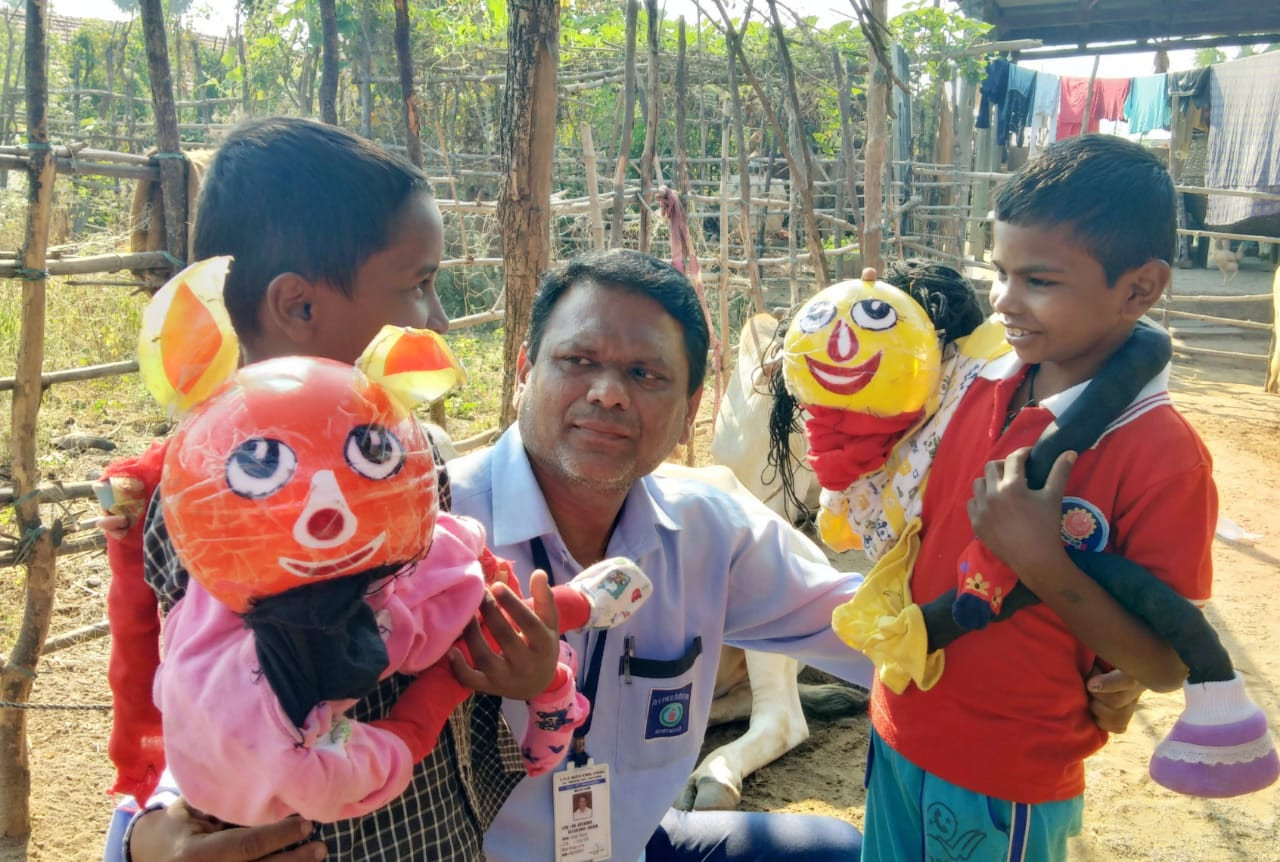
How do you convince children?
With parents, children are also hard to convince to come to school. So I did puppetry shows in which I hold the formal certification from CCRT. Showed them cartoon films, performed for them, this is how I tried to change children's perspective towards school. I feel, 'Kaushalya he saglayat motha shashtra ahe'.
Currently, you are commissioned at Asaralli, tell us about your teaching years at Asaralli?
After I completed my BEd, I was posted at Asaralli. Asaralli was one of the remotest & backward regions of Maharashtra. I remember the first day of school, all 43 innocent faces looking like Mowgli bunged together, teachers with a long face. The room was filled with disappointments. After a month, I was reposted back to my previous model school in Sironcha. I don't know why but I declined this offer and stayed back at Asaralli. These disappointed faces were something hard to leave back and have reputed life in Sironcha model school. Today, that insane decision has turned in my favour. It was one of the best decisions, as today school has 211 students. From 43 to 211, from 3 to school having 7 teachers, we made quite a journey. Otherwise, I feel school would have been dead, children would have been pushed into darkness.
Private Schools and Public Schools have a certain divide, how much do you agree with this?
There is a huge difference, especially quality-wise. Many elements add to poor quality education. First, a government official has limited knowledge of ground-level realities. New officers don't reach out due to naxalite's presence in the area of Zilla Parishad School. Recently, even a few teachers are also accused of being Naxalite. The biggest barrier is language, it becomes hard for students to perceive things. For 1st to 4th classes, there is only one teacher. The single teacher plays multiple roles. He is a class teacher, subject teacher, and also the principal. He also needs to do information collection work as and when needed. Every day, the government asks for some or the other data. It is difficult to keep up the pace. These all together in some or the other way impact the quality of education. For other schools these problems are uncommon. Teachers have to make an extra effort to first learn their language, increase their involvement to bridge this difference.
Also, private schools in big cities have modern technology. Parents are educated, for children here teachers are only the parents. We make all the decisions of their educational life. Mainstream schools have better facilities, here we have limited resources. teachers have to think right from their uniforms up to deciding their futures. For example, when they pass put 7th grade, I have to get them admitted to another school for further education. There document, TC process, enrolling them in hostels I have to fulfill everything otherwise they will dropout. If they are Adivasi then I have to admit them to the Eklavya Adivasi School so that they can avail their benefits. If they are girls, have to take care of their security. Otherwise, they will drop out get married, everything going back to square one.
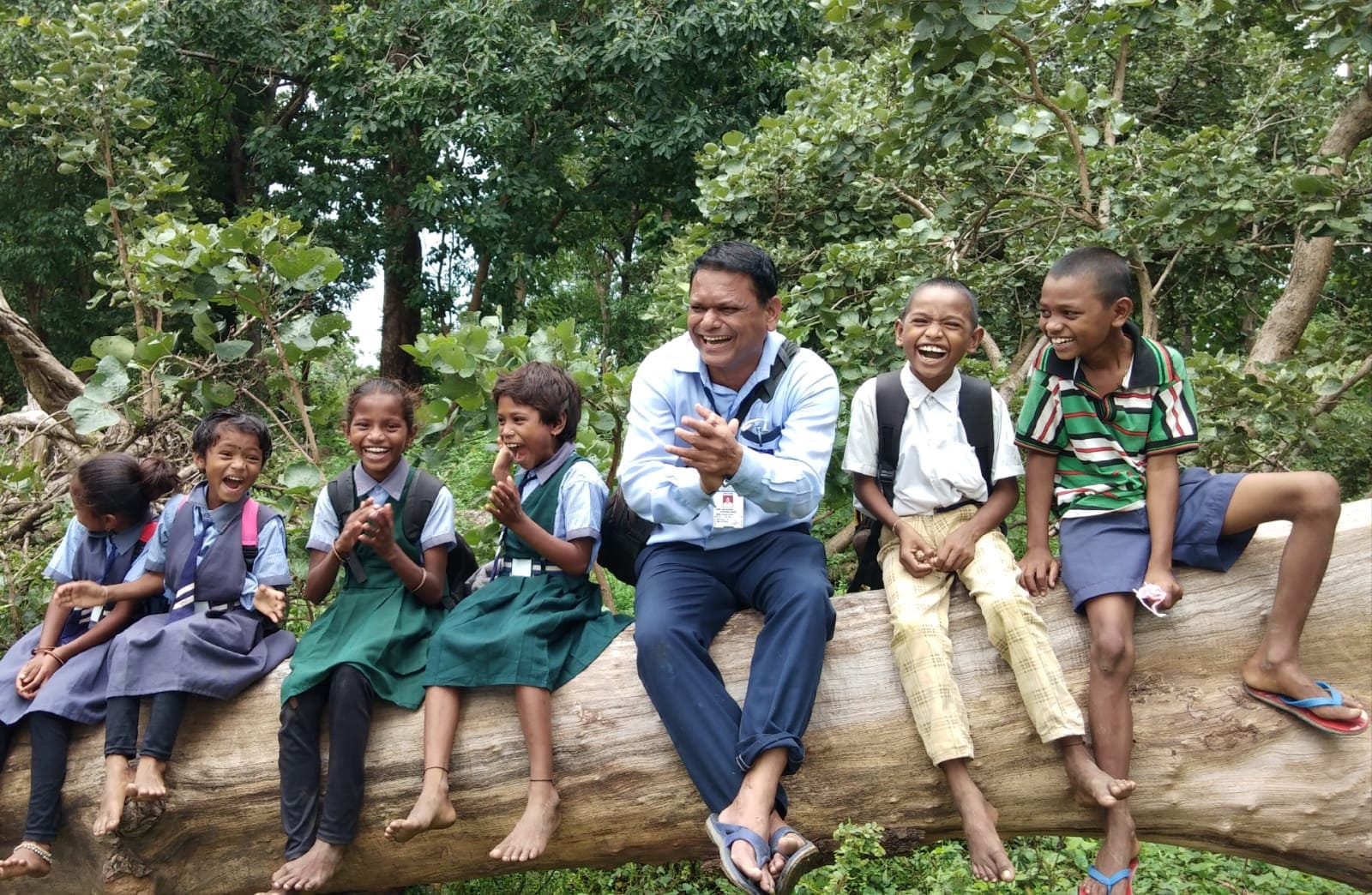
How did you overcome these challenges?
First, you have to prepare yourself mentally. Mentally to compromise with all the issues. There are issues of low shading, network issues, water issues. We had no lights for months together. Today we left that in past. I created my mindset wherein to find solutions to all the hurdles coming in the way of education. I think when you have something on your mind, you get the energy to move bigger mountains. The government has been resourceful to sort these challenges. Compare to eight years, things are better.
Zilla Parishad's primary schools are from 1 to 7 classes, What about their further educations? How responsive are the students towards English?
After 7 grade, these students attend school in Ankisa- Shreenivasa high school which is 3 km away from this school. There are hostels where children live and attend further education. For college, they either choose cities like Pune, Nagpur, or Mumbai. Our command over English is low, for children also it is problematic. We already struggle them to make familiar with Marathi, English is a bit far away thing for them. Nonetheless, we teach them English along with other languages. We also organize guest lectures. Other than that they are taught subjects such as Mathematics, Science, Sex education, and Social Science.
How is your daily working schedule?
I have no specific working hours. The school has now become life. Sometimes my wife keeps on asking me- 'If school is life then who is wife'. My wife and sons have supported me extensively. They stay 150 km away from Asaralli. I visit them on Saturdays and Sundays. This has been my schedule for approximately 8 years. I stay in a room nearby school. With all government work and teaching, working hours are long.
In COVID-19 induced lockdown, what were the difficulties?
Earlier, we assumed COVID-19 won't reach us but that was not the case, it did reach us. The place is full of forest and hardly any people go out, so contact in person was less. Being backward region we had our own set of problems, COVID-19 added more to it. The world was looking towards online education as an alternate. For these children, it was not possible. They had no android phones. How can you expect people living in small huts to have Android phones? About 1 to 2 % had mobiles with limited digital literacy. It was essential to decide the school's role, teacher's role, and parents' role in finding alternatives. Mass awareness was need of the hour. We visited the student's house, explained things to the entire family. We urged parents to make their children sit for few hours, just like attending school. The focus was offline education maintaining all the possible distance. A radio program from Nagpur Division 'Shale Baherchi Shala' became one medium of reaching out to students. They also did a program in which a student of Asaralli was interviewed concerning her study pattern & parent's involvement. They also introduced short educational shows. The teachers from the school broadcasted these recorded clippings through a loudspeaker in children's respective areas. We had poetry, poem, and also reading comprehensions by students themselves through loudspeakers. The rest of them listened from their homes. The question bank bowl was prepared wherein self-study activities chits were put. The bowl was kept in the areas where children lived. The projector & laptop were extensively used- offline videos were produced, in the afternoon we played these videos for them. Our slogan was slogan- 'Corona se ladenge school hum padenge', and 'Shale la kulup lau shakto shikshana la nahi'. We also participated in competitions held by SRT- Maharastra Saishanik Shanshodahn Parishad Pune. We kept finding ways to stay in touch with students. Online connectivity could have reached only 5 to 6 students among the 200s.
You are awarded National Teacher Award for the work you have been doing over the years. Elaborate on the remarkable work you have been doing?
Before my posting, the education system in the region failed due to the language barrier and diverse culture. As the village thrives at the border of Telangana, they had Telugu vs Marathi rivalry. So children here never understood Marathi, speaking was impossible. It became a notion among teachers that people here won't adapt to Marathi and they will keep on speaking Telugu. I observed, for the proliferation of education, it is vital to focus on linguistic development. The moment they start reading Marathi, gradually they will turn to education. Children understand everything all they need is moulding. Once while teaching, I said, 'I know how to speak Telugu, it's just that I don't speak'. On this, a girl name Ashwini replied- 'Sir, we also know Marathi but we don't speak it. They knew Marathi, but they lack that environment, platform where they can speak Marathi. For a while, I stop teaching and started providing opportunities to them to be expressive. Influenced by the media, we initiated a reporting program ZP TV Asaralli. I was the reporter, going around shooting, telling stories, and showing the same to the students. They started participating, picking mic, primarily spoke in Telugu later in Marathi.
Another experiment I launched was Jollywood, which simply means Joyful Learning in Childhood. The concept was coined later. But kids here had a huge craze of cinema, when Bahubali was released, it was so in discussions. I took the idea, made films, casting them in these films, and showing them. The first film was the Telugu language- 'Guruji. From Telugu, we when to Marathi. We produced films such as Guru, Guruji, My Best Friend Teacher, No Tobacco Addiction, Mirchi, Kitty, Vetha, and many more. Never kept school hidden in the wood, it was connected to the modern world. Through social media such as Facebook, we showed world short films like 'Shikshanacha Anandvan'. Teachers started taking interest in my work. As we say every child is special, I believe every teacher is special. Because they have unique skills in them, just need to utilize to make a difference. I produced films on the subject of their concern in their own language, I feel the jury loved this thought and was honoured with the award.
Can you shade more light on Jollywood?
We make movies that are children-oriented films. The choice of topics was their daily problems and how to deal with them. For example, we did a film called Savi. It speaks about helping each other. We had this film Vara which spoke on the issue of not having android phones. There was news, girl suicided over not having a phone to access online classes. Vara is based on this news. The genre of the video was motivational + educational. Teaching other subjects was the next phase of it. We have a special science innovation lab where these students take these classes. For maths, we have virtual classes taught by Balbharati from Pune. They have schedules and timetables. During the lockdown, we had a moving library so we used to take books, science equipment at their door.
Are you passionate about films and acting?
Yes! I am fond of Dramatic Arts. Since 10 years including teachers & students under the banner of Madhuban Shikshan, we are making films and educating. We created a group of teachers and students having the various talents of singing, acting, and writing. We do shows in different places without any remuneration. We had a small music orchestra where we produced our original lyrics using Bollywood music. So far, we have organized 80 programmes on weekends.
Earlier you spoke of Young Reporters of Environment (YRE), what is YRE & impact of it?
YRE Eco-School is a global level initiative in which youth between the ages of 11-25 can join the program through their school, youth group, or as individuals. Basically, it is to create awareness among kids considering climate change. We are associated with UNESCO Associate School Network. The schools from all over the world are registered with them. Our students participated in their photography & film competitions. The students have done reporting on how deforestation is happening in Gadchiroli. Another story was on impurities in water. We connected to a Russian school, shared our work with them. The impact was we could connect globally. The concept of Tribal to global was coined hereafter. They spoke to our children, understood their work. It helped them broader their spectrum. Today they know there is a big world outside and students like them studying in schools.
YRE one part of 'Tribal to global', what are the other initiatives?
YRE is one initiative. 'Bridge of friendship' was another- Every year schools organize meetings of students to socialize. This time pandemic halted the event. However, they asked us to send photographs with the caption of school names. The next on the list is the 'Girls leadership Programme'. Girls after the age of 13-14 are married off. Few girls become caretakers for their parents working in farms and forests. Under this initiative, opportunities are provided to bring them ahead, take up leadership roles and make them proactive. For example, girls participated in a quiz competition. 'Pen Pal School' is a platform where articles penned by students from all over the world are submitted. Every week to one article is to be sent, we send the best one. The topics could be any such as culture, environment, country, and many more. This helped them to inculcate the habit of writing, understanding, and reading. There is an app Trello, the app has the presence of many schools on it. Here you can exchange ideas, experiments you do while teaching. We exchange videos no matter what language it is what quality it is we are doing it. If we keep telling ourselves we are backward, then there will be no way out to look forward.
Does the government help in developing new initiatives and ideas?
The government doesn't help in developing ideas. They are busy fulfilling their own projects. The teacher has to do it. There is a problem, have to find a solution and in search of a solution, the idea comes to mind. The sub name for our school is Educational Activity Research Center. I also believe the teacher is a great researcher. I tried to find out what the world is doing, what teachers are doing in other parts of the world. The internet has been quite cooperative with me. Initially, government hesitates in accepting news ideas and working on them. However, they do respond positively. They ask to show results and then decide whether to support or not. The resources are made available but there are terms and conditions. For example- We got a virtual class, an innovative lab because the number of students increased. In the beginning, we had no response. The school was actually between drainage streams. The structure was stood still, but it never felt like school.
Has Naxalism ever been a hindrance in the path of education?
Naxalite have looted police stations several times but never touched schools. However, children are easy to radicalize and push them towards Naxalism. So, the school decided to establish an initiative- BlackBoard & RedBoard. Blackboard replicates dignified life whereas RedBoard signifies Violence and Naxalism. Red boards are boards used by Naxalites to write their agendas. We started this 'Scout guide Himalayan Unit' to create awareness and develop a feeling of nationalism & unity. By doing so many people including my colleagues warned me of jeopardizing my life. They said Naxalites might get offended by the idea. However, it never happened. I feel Naxalites are never against education. It in a way also benefits them. It is always good to have an educated warrior in the team. I take pride in that none of my students took the path of Naxalism. Few of them have become police officers, army officials. My Blackboard was proven influential and motivational.
How parents reacted to the further education of their girl child?
Earlier, it was hard to convince but now it is not. The parents are more welcoming. They listen when I explain things. The awareness programs have helped us a lot when it comes to female students. The school has arranged guest lectures. We invited female guests to inspire children. For example, the principal of Kasturba Gandhi Vidhyala, the Female Sarpanch of the nearby village, and former students. Today, around 70 to 80 girls have done good in their careers. Few are nurses, doctors, Air hostesses, and working in the police department.
Coming from a Tribal region, facing discrimination is normal. Have you ever counselled your former students who studying in metro cities?
The situation never came to the counselling part. Most of these children stay at Adhivasi hostels. The only complaint they did was people laughing at their language and accent. That is true, no matter what you do the accent still stays, pronunciation is different. So, I explain to them there is nothing to be ashamed of. People coming from other regions in our locality don't know the language but they don't feel shameful about it, then why should you.
What are your plans for the future?
I want my students to become IAS officers. For that, I am working on a plan. We will be conducting lectures on MPSC and UPSC. The UPSC aspirants or those who have passed exams we are contacting to give guidance on the whole process. Tell them what it needs to do to appear for the exams. We invited a few army officers such as Indu and Jafar madam. We have named the initiative as 'Best Guest'.
 What is your message for other teachers in India?
What is your message for other teachers in India?
Be positive, think positive, find ways, teaching is a happy thing. Thinking it as a 11 to 5 duty won't help bring change in society. I applied 4 times from 2018 to 2021, finally awarded this year. However, this entire thing was never for a award, it was a way to give my students my school an identity, make them notice in Delhi.
Watch his short films here.
(Interviewed and Translated by Snehal Mutha - muthasnehal535@gmail.com)
The original interview was conducted in Marathi language in video format. The video will be published soon, stay tuned with Kartavya Sadhana.
On the occasion of Teachers Day, we are publishing special interviews of two teachers from Maharashtra who are conferred with the National Teachers Award 2021. The interview podcast of Umesh Khose will be published today evening.
Tags: Teaching Eductaionist Gadchiroli Successstory Naxalism Naxalites Khurshid Shaikh Snehal Mutha Interview Teachers Day Load More Tags

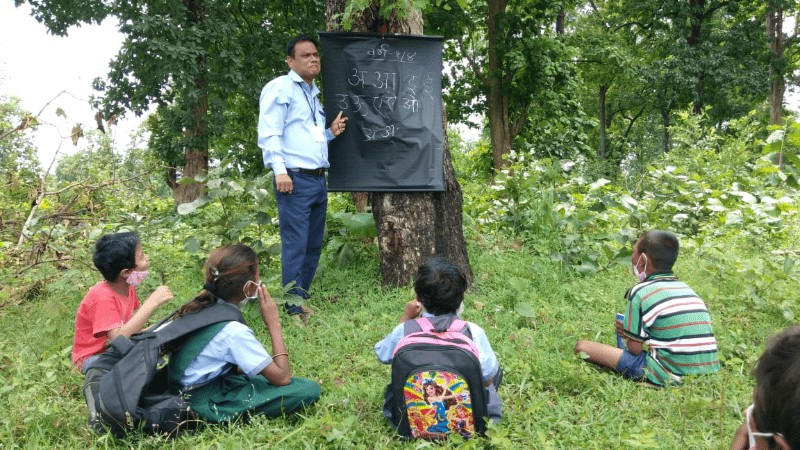

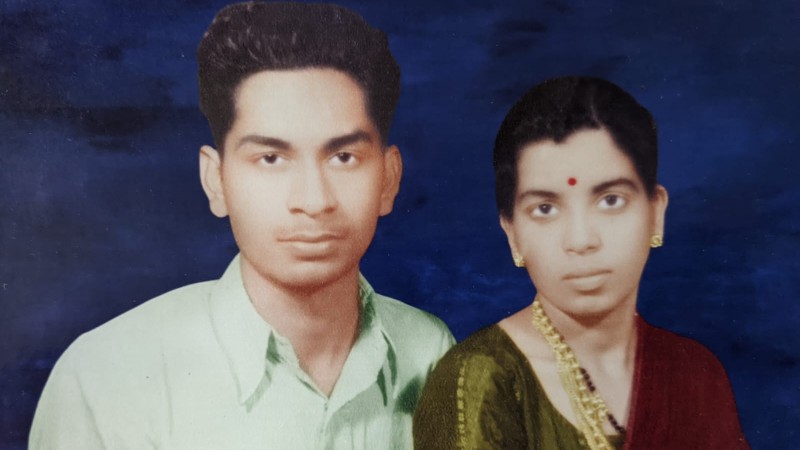
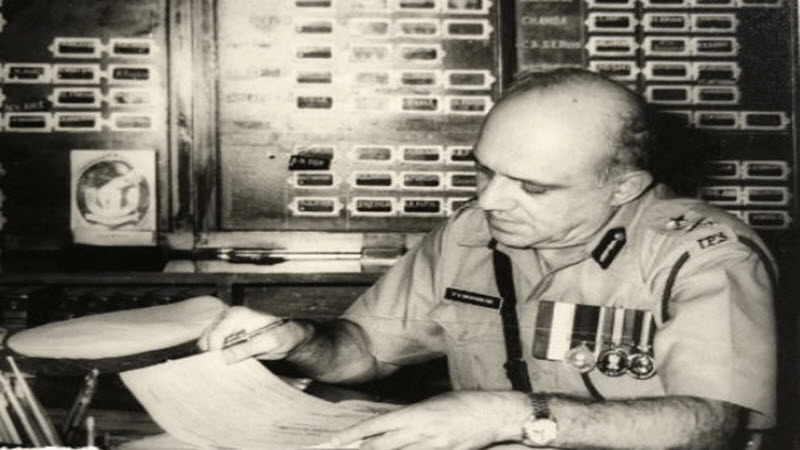
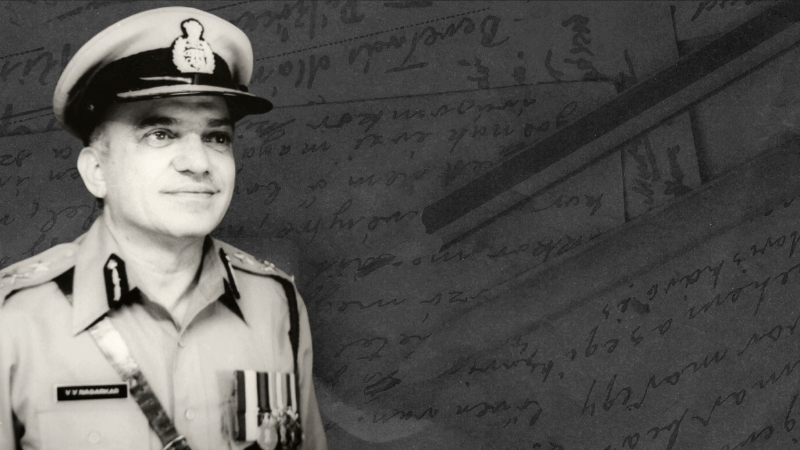
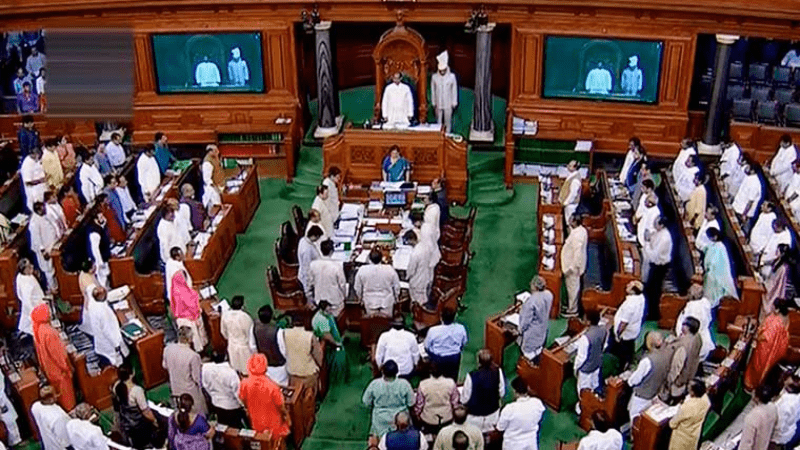
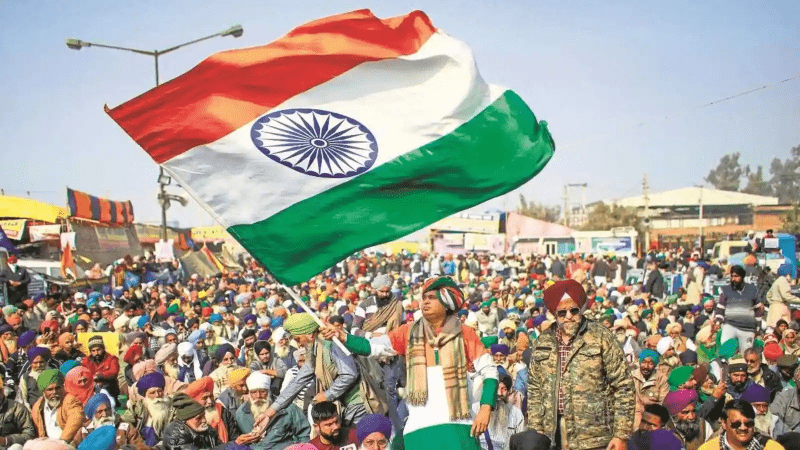

























Add Comment